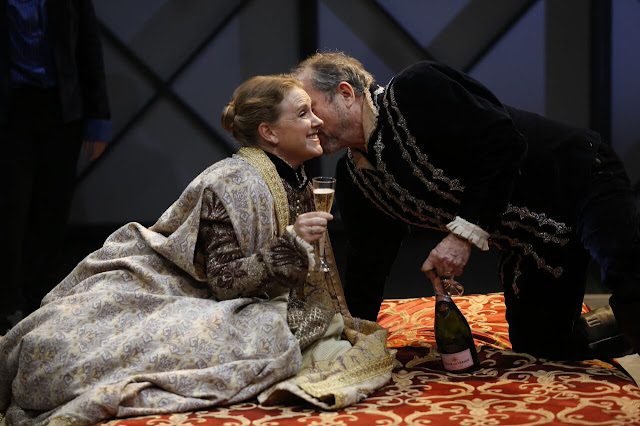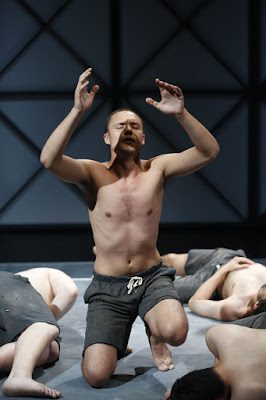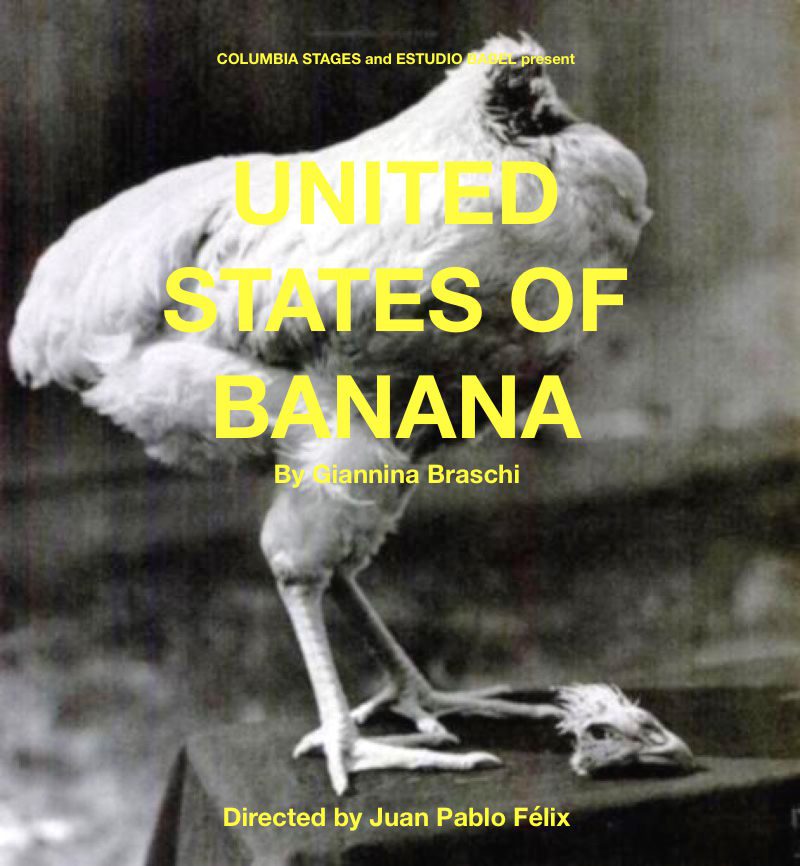Postdramatic theatre

[AI: The term Postdramatic theatre was coined by Hans-Thies Lehmann through his historical book The Post Dramatic theatre (1999) in which he theorized the conceptual base of the post avant-gardist theatre; a theatre that rejected the representational and dramatic form of storytelling.]
Postdramatic Theater Voices
- Forced Entertainment (Sheffield)
- Jon Fosse
- Tadeusz Kantor (Kraków) Postdramatic theatre
- Heiner Müller (Berlin) Postdramatic Theater
- René Pollesch (Berlin) Postdramatic Theater
- Robert Wilson (New York City)
- The Wooster Group (New York City),
- Giannina Braschi(San Juan, Puerto Rico)
- Elizabeth LeCompte (New York City)
- Robert Lepage (Quebec)
- Pina Bausch (Wuppertal)
- Elfriede Jelinek (Vienna)
- Verdensteatret (Oslo)
- Alvis Hermanis (Riga)
- Teater Moment (Stockholm)
- Socìetas Raffaello Sanzio (Italy).
Postdramatic theatre resources
- Postdramatic Theatre by Hans-Thies Lehmann
- Teaching Postdramatic Theatre: Anxieties, Aporias and Disclosures
- Postdramatic Dramaturgies: Resonances between Asia and Europe
- Postdramatic Theatre and India: Theatre-Making Since the 1990s
- Postcolonial Plays: An Anthology
- Poets Philosophers Lovers
- Focalizing Bodies: Visual Narratology in the Post-Dramatic Theatr
- Robert Wilson. Landscape Images and Post Dramatic Theatre


United States of Banana Theater
“The plot of United States of Banana unfolds in the following way: Shakespeare’s Hamlet, Nietzsche’s Zarathustra and a character named Giannina decide to cross the Hudson to go to Liberty Island, penetrate the Statue of Liberty and free Segismundo, subsequently freeing Puerto Rico from its colonial captivity. This act of defiance produces a response from Gertrude –Hamlet’s mother – who concocts a plan to marry Basilio, free Segismundo, and bring him into the same family as Hamlet as the only possible way to save the ancien régime of imperial United States of Banana from collapsing.
As part of her plan, Gertrude convinces Basilio that Puerto Rico should be granted admission into the United States of Banana, that all illegal immigrants shall be granted citizenship, and that the borders of the United States of Banana shall be opened. However, her efforts to mitigate the revolution by granting concessions to Giannina and the other insurgents fail, who declare unilaterally the independence of Puerto Rico after realizing that the changes in the United States of Banana’s policies towards Puerto Rico and Latin America were an attempt to perpetuate a sort of imperial Pax Banana under the joint leadership of Basilio and Gertrude.
War erupts between Puerto Rico, Cuba (which has claims to Puerto Rico and seeks to create its own Caribbean empire), and the United States of Banana; Giannina and her comrades can only rely on coconuts and philosophical conversation to fight the soldiers of the empire. But the timely intervention of China – the United States creditor – secures the independence of Puerto Rico and brings Braschi’s geo-political comedy to a close.”
Ronald Mendoza-de Jesús, “Free-dom. United States of Banana and the Limits of Sovereignty,” Poets Philosophers Lovers On the Writings of Giannina Braschi, 2020.

Postcolonial Theater Example
Juan Pablo Felix Torres on directing Postdramatic theatre inspired by Puerto Rican playwright Giannina Braschi.
“On the process of staging the play United States of Banana, based on the original text written by Puerto Rican author Giannina Braschi. This work has been widely praised by academics both in and outside the United States and has opened new spaces to reflect on the ideas that concern the Latino population living in the US. These literary expressions are the sign of a vital community that is slowly assuming a historical role in the shaping of the most powerful nation in the planet.
Since I consider theater to be a social thermometer, I chose this play as my thesis project to testify about the state of affairs regarding the situation of Puerto Rico. Its lack of sovereignty and self-regulation constitute a metaphor about the foreign policy the government of the United States has exercised in many countries, but especially in Latin America. However, it is also time to set our own proposals over the table and abandon the paternalist model that justifies and supports our attitude of beneficiaries of the charities coming from the first world.
In this play, characters from Classical literature become symbols of entire races and populations to polish a gigantic mirror in which we can look at ourselves. Despite its scathing humor and harrowing critique, the text helped us create a performative event in 6 which we all, creators and spectators, shared a common responsibility: that of contributing to making a world that is fairer and a society that finds hope more easily…”
For the full essay on postdramatic theatre, click here
Key words: Postdramatic theater, post-dramatic theatre, vanguard theater, contemporary theater, post dramatic performance, Puerto Rican playwrights, Puerto Rican women playwrights, Latinx theater, Postcolonial theater, Puerto Rican theater, Latinx playwrights, Puerto Rican theater companies
